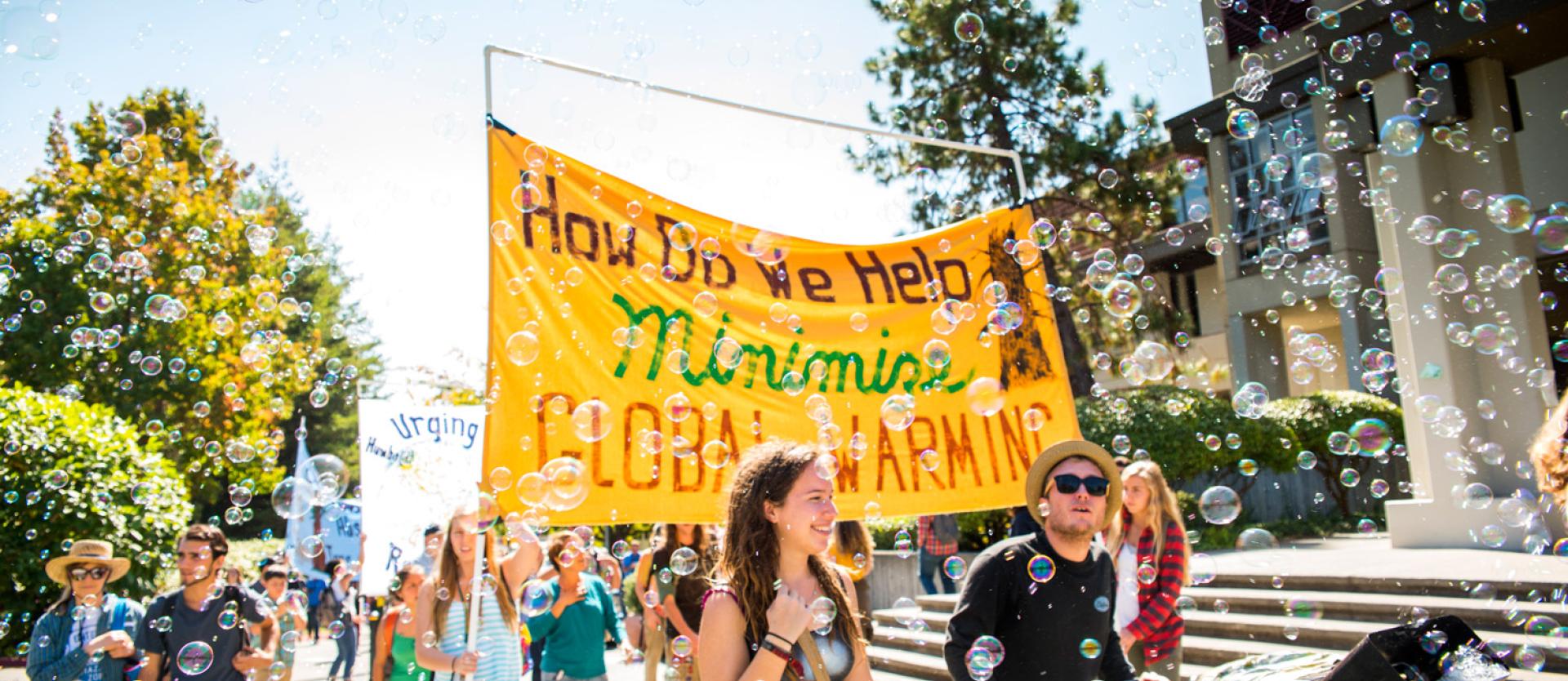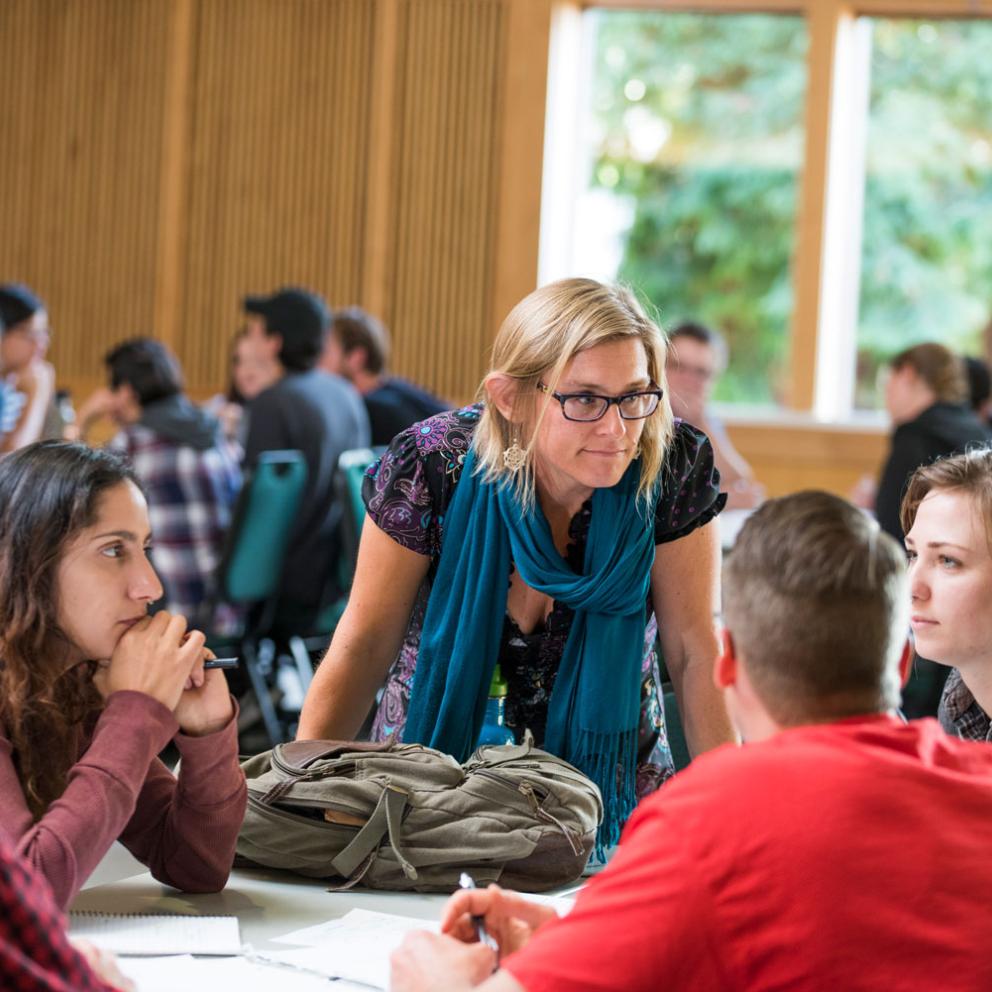Breadcrumb
Environmental Studies, B.A.
This interdisciplinary program provides students the tools for understanding the complex relationships between human communities and both “natural” and constructed environments. Students will demonstrate an understanding of how environmental challenges involve multiple perspectives and social contexts, recognize the role of power and privilege in shaping those challenges, and realize how different research methods lead to diverse ways of examining the environment.
Why this program
Students have the opportunity to teach classes through Humboldt’s eco-demonstration home, the Campus Center for Appropriate Technology, such as green building or homesteading.
Students can get involved with the Dendroecology Lab, where scientists are researching how climate change is affecting tree growth.
The opportunities for service learning, internships, and networking around sustainability and climate justice are abundant.

Emphases
Coursework can include sustainable agriculture, technology and the environment, and appropriate technology
Students can take courses in communication and social advocacy, community organizing, community activism and more.
Students can take courses in principles of biology, general botany, wildlife conservation, and zoology.
Classes in remote sensing, geospatial imaging systems, geospatial programming and more are offered.
Coursework can include digital media, photography, beginning reporting, media making tools and more.
Environmental Studies vs. Environmental Science
In Environmental Studies (B.A.) we
- Study the social side of people & environment
- Learn how cultural & political systems work
- Integrate scientific knowledge to gain holistic understanding of how environmental problems emerge and are addressed in various contexts
- Promote just sustainability across broader society
In Environmental Science (B.S.) we
- Study fundamentals of science and natural history
- Analyze and apply scientific knowledge in labs and in the field
- Use technology to apply science and solve problems
- Influence policy decisions using scientific understanding of environmental challenges

Careers
From conservation services, to local food sustainability programs, working with autistic children, directing student finances at a California college, and building a self-sustaining home on wheels, our graduates are pursuing a wide variety of careers.
- Community Organizer/Activist
- Conservation Specialist
- Energy Policy Specialist
- Environmental Analyst
- Environmental Consultant
- Environmental Educator
- Environmental Lawyer/Lobbyist
- Journalist/Writer
- Non-Profit Administrator
- Public Policy Analyst







